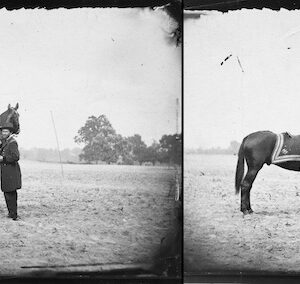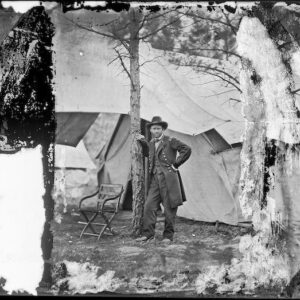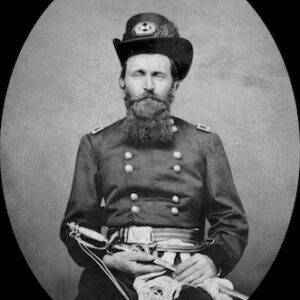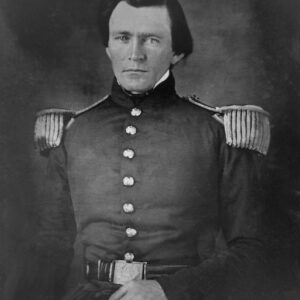Tag: District of Cairo
Wikipedia says: On December 20, Grant’s command was reconfigured to include C.F. Smith’s and renamed the District of Cairo. From that perch, in February 1862, Grant led the Union campaign against Fort Henry, on the Tennessee River, and Fort Donelson, on the Cumberland River. His troops for this campaign eventually numbered approximately 27,000 men, divided into three divisions commanded, respectively, by John McClernand (1st Division), C.F. Smith (2nd), and Brig. Gen. Lewis Wallace (3rd).
Grant initially moved up the Tennessee River (southward) to Fort Henry with only two divisions, McClernand’s and Smith’s. On February 6, even before he could organize his force for attack, the fort surrendered to U.S. Navy Flag Officer Andrew H. Foote, commander of the Western Flotilla. Several days later, in winter conditions, most of Grant’s two divisions marched overland to attack the more formidable Fort Donelson, situated on the Cumberland River but only twelve miles (19 km) away from Fort Henry. Additional Union regiments arrived at Fort Donelson by water; these were formed into the new 3rd Division under Lew Wallace. The Battle of Fort Donelson began on February 13 and, after sharp fighting, concluded on February 16 with the unconditional surrender of the remaining Confederate garrison of approximately 15,000.
Although it would still be a month before the term “Army of the Tennessee” came into use, the three divisions that served under Grant in the Henry-Donelson campaign were the nucleus of that famous army and had now won an important victory that foreshadowed its later successes. One historian describes their accomplishments in the Henry-Donelson campaign as the “first significant Union triumph in the war”; its fruits included breaking the Confederacy’s western line of defense, securing Kentucky to the Union, and opening the South, especially Tennessee, to invasion. Another historian notes that Grant’s troops “had performed prodigies of valor and endurance during the campaign” and had learned from it that “hard fighting would bring success.” As a result of the campaign’s conspicuous success, Grant, McClernand, Smith, and Wallace were all promoted to the rank of major general of volunteers. Grant in particular became a national celebrity—”Unconditional Surrender” Grant—for his refusal to allow any other terms of surrender.



